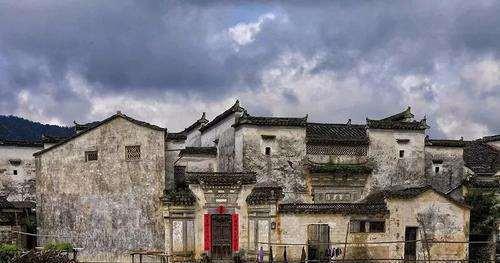Chinese culture has a long history, and the most emblematic of its inheritance characteristics is the Chinese surname. The birth of china's surname can be traced back to the period of the Three Emperors and Five Emperors in ancient times, derived from the totem symbols of primitive tribes, and eventually developed into surnames.

As we all know, surnames are mostly inherited from their fathers and accompany them throughout their lives. There is a saying that "if you don't change your name, you don't change your surname", which is the importance of surnames to our people. Especially for the wandering wanderer, when he meets the same surname in other places, he is as kind as if he meets the same hometown, and "five hundred years ago it was a family" is one of the opening words of mutual familiarity between the same surname.
Therefore, the Chinese people only have to change their names, and there are few changes. Only in that extreme case, such as a parent divorcing and the child following the mother, will change from the father's surname to the mother's surname. After all, the surname represents your family origin, and the awareness of Chinese "roots" is quite strong, so it is not easy to change the surname.
But in Jiangxi, China, there is a magical village, and the villagers here are two surnames of life and death. When he was alive, his surname was Yang, but when he died, he changed the surname on the tombstone to Wang, and the whole village without exception was like this.
In fact, the villagers in this village were originally surnamed Wang, and according to the genealogical records of the ancestral hall in the village, the ancestors of the villagers were migrated from a branch of the Wang surname in Anhui. Later, when Zhu Yuanzhang established the Ming Dynasty, in order to facilitate the management of the people, a census was conducted, which would be called the people to register and make a record. The officials in charge of this work are generally officials of the Ministry of Households.
Because the people in the household department were basically transferred from the imperial court, there were all the people in the north and south of the heavens, and there were basically no local ones. They have different accents and can easily lead to misunderstandings. The officials who were sent to the village at that time made a big mistake because of the language barrier. That is, when registering the name, the local people's Surname Wang was directly misheard as the Yang surname, and in this way, the people of this village mistakenly surnamed Yang.
Since the household registration system of the Society was manually registered, it was very troublesome to modify. Even if the villagers later learned that their surname was wrongly registered, it would be difficult to change it back. In the end, it was not over, and the villagers have always been surnamed Yang until now.
In order not to forget Ben, they found a compromise method, that is, when they were alive, they were surnamed Yang. Once dead, the tombstone must be engraved with the surname of Wang, as the saying goes, the fallen leaves return to the roots, which is also an explanation to the old ancestors.
It sounds quite incredible, but in fact, this phenomenon does not only occur in Jiangxi. There is a place called Xiaotun Circle Village in Yantai, Shandong Province, where people all have the surname Li, but after their deaths, they have changed to the surname of Wu. The reason for their change of surname was not that they had ascended the throne in the household registration, but that the Qing Dynasty Nahui, Kangxi Ping San Fan, in order to combat Wu Sangui's power, ordered a large-scale hunt for his people. The villagers of Xiaotun Circle Village were the descendants of Wu Sangui at that time, and in order to escape the pursuit, they had to adopt the practice of surnamed Li before they were born and surnamed Wu after death.
It is not difficult to see from these cases that the ancients attached great importance to surnames. If it were not for the last resort, it would never have changed its surname. And even if you change your surname, you still have to change your surname back when you go to see your ancestor. If Izumi had met his ancestors and asked for two surnames, wouldn't it have been extremely embarrassing.
Dear readers, is there such a situation of life and death around you? You may wish to communicate in the comment area, so that the majority of netizens can also see the unique charm of Chinese surnames.